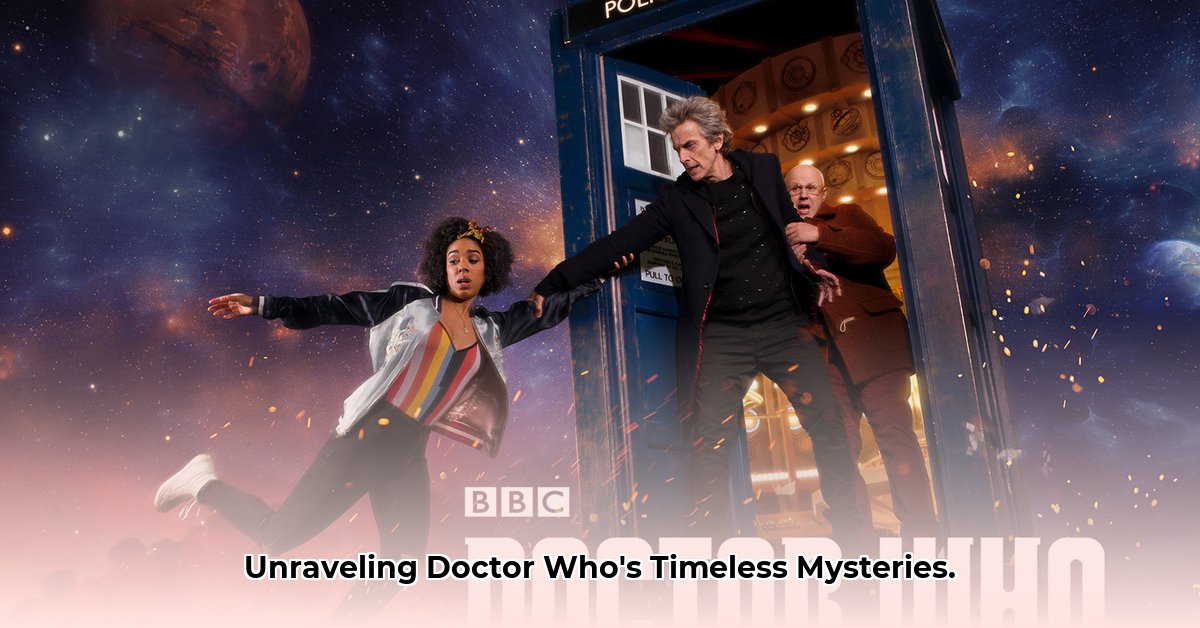
The Enduring Allure of the Time Lord
What is it about Doctor Who that keeps audiences enthralled for decades? Is it the sheer spectacle of alien landscapes and monstrous creatures? Certainly, the visual effects have evolved dramatically since the show's inception, offering a feast for the eyes, from the quaint charm of early sets to the breathtaking CGI of modern episodes. But the show’s enduring appeal runs far deeper than mere aesthetics. Isn't it true that the true magic lies in the intricate tapestry woven from adventure, character, and surprisingly profound themes?
The show's longevity, however, isn't solely down to visual spectacle. A key ingredient is the dynamic interplay between the Doctor and their companions. Each companion brings a unique perspective and personality, adding layers of emotional depth to the Doctor's often solitary journey. These relationships evolve organically, mirroring the Doctor's own growth and transformation across multiple regenerations. This dynamic elevates the show beyond simple sci-fi adventures; it explores the complexities of human connection amidst the backdrop of time and space. Isn't the emotional depth of these relationships a testament to the show's enduring power? For example, the relationship between the Tenth Doctor and Rose Tyler remains a fan favorite, demonstrating the power of companion dynamics in driving the narrative.
The storytelling itself is a masterful blend of self-contained adventures and overarching narratives. Each episode offers a satisfying resolution, yet contributes to a larger, ever-evolving tapestry of mysteries and suspense. This careful balance enhances both immediate gratification and long-term audience investment, creating a unique viewing experience. Isn't this delicate balance a key element of the show's success? This intricate structure is a hallmark of the show, adding another layer of complexity for viewers.
Beyond the Visuals: Characters You'll Fall in Love With (and Maybe Some You'll Hate)
More than just a collection of exciting adventures, Doctor Who masterfully explores profound themes. The very nature of time travel allows for the examination of morality, responsibility, and the unforeseen consequences of even seemingly insignificant choices. The series doesn't shy away from complex ethical dilemmas, forcing viewers to confront their own beliefs and values. This intellectual depth, woven seamlessly into the fabric of the fantastical, elevates the show from mere entertainment to a compelling exploration of human nature. Doesn't the show's willingness to grapple with complex ethical dilemmas demonstrate its maturity? This complex interplay of morality and adventure is precisely what sets Doctor Who apart.
The show's continuous evolution and its ability to adapt to changing times is equally remarkable. From the simpler, more episodic adventures of the early seasons to the complex, serialized arcs of recent years, Doctor Who has shown remarkable adaptability while maintaining core elements of its identity. This constant reinvention, while sometimes facing criticism, ultimately contributes to the show’s enduring relevance and capacity to appeal to new generations of viewers. Isn't this adaptability a testament to the show's resilience and enduring appeal? This continuous evolution allows the show to remain fresh and relevant.
Adapting to the Times: A Show That Never Gets Old
Choosing a starting point can feel overwhelming for newcomers, given the sheer number of Doctors and seasons. To navigate this, consider the following guide, focusing on the distinct eras defined by each Doctor's portrayal:
| Regeneration | Doctor | Recommended Starting Point | Key Characteristics |
|---|---|---|---|
| Ninth | Christopher Eccleston | "Rose" (Series 1, Episode 1) | The revival's launch; establishes the modern era's tone. |
| Tenth | David Tennant | "The Christmas Invasion" (Christmas Special) | Popular entry point; introduces a beloved and iconic Doctor. |
| Eleventh | Matt Smith | "The Eleventh Hour" (Series 5, Episode 1) | A fresh start with a new Doctor and companion; highly accessible. |
| Twelfth | Peter Capaldi | "Deep Breath" (Series 8, Episode 1) | A more mature and introspective take on the Doctor. |
| Thirteenth | Jodie Whittaker | "The Woman Who Fell to Earth" (Series 11, Episode 1) | Introduces the first female Doctor, offering a new perspective. |
| Fourteenth | Ncuti Gatwa | Upcoming | A brand new era promises a fresh start and a unique interpretation. |
This guide offers a personalized entry point for potential viewers, catering to various preferences and ensuring a smooth introduction to the vast world of Doctor Who.
Ultimately, Doctor Who’s enduring appeal stems from its unique blend of thrilling escapism, compelling characters, and surprisingly profound themes. While not without its flaws, the high points far outweigh any inconsistencies, making it a show worthy of exploration for any television enthusiast—a timeless tale that continues to captivate audiences across generations.